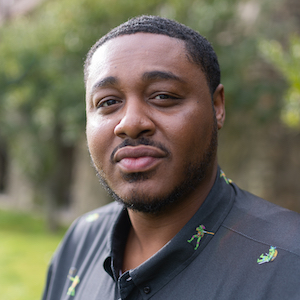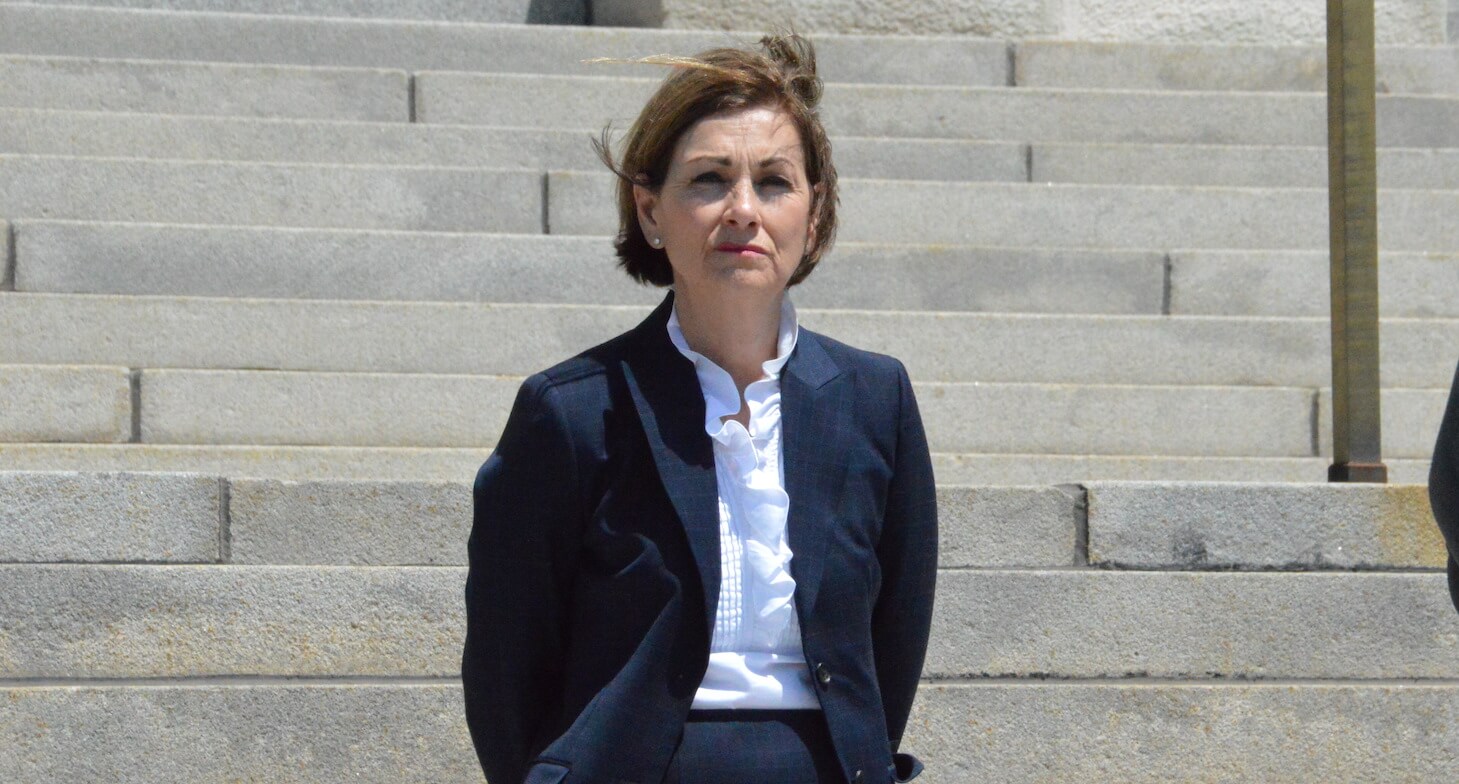
For the third legislative session in a row, Gov. Kim Reynolds has introduced another version of her private school voucher bill, but the latest proposal is her boldest, biggest, and most expensive one to date.
Reynolds was successfully reelected to another four-year term and ran on a platform of giving parents more say in their child’s education; one such method of doing that was with her private school voucher bill, which she calls “student-first scholarships.”
Her 2022 voucher proposal would have diverted $55 million in public funds to support 10,000 scholarships with certain income requirements attached; however, the 2023 version of the bill—over a three-year process—would be open to all families and cost more than $100 million in the first year alone, according to the Des Moines Register.
[inline-ad id=0]
Under the new bill, every Iowa public school student—more than 481,000 kids, according to state data—would be eligible to receive $7,598 from the state that their families can use to pay for private school tuition or other associated expenses.
This amount would remain the same for all three years.
The bill would also allow existing private school students—33,692 kids, according to state data—to receive state funding as well, but there would initially be eligibility requirements over a three-year period:
- In year one, private school students whose annual family income is at or below 300% of the federal poverty line ($83,250 for a family of four, according to the governor’s staff) would qualify for a scholarship.
- In year two, private school students’ families would have to be at or below 400% of the federal poverty line ($111,000 for a family of four).
- By year three, there would be no income requirements.
[inline-ad id=”1″]
House Minority Leader Jennifer Konfrst (D-Windsor Heights) noted what kind of consequences the lack of future income requirements on this year’s version of the voucher bill could lead to.
“A rich family in Des Moines could go ahead and put the rest of their money in savings and spend taxpayer dollars to send their kid to private school while a public school in small-town Iowa crumbles because it’s lost resources,” Konfrst said.
The Register also notes that if every existing Iowa private school student applied for a scholarship, it would cost the state $256 million. This amount would be more than the entire budget of Davenport Community Schools, Iowa’s third-largest school district.
According to the governor’s plan, the money would be deposited into a student’s account each year until they graduate high school or turn 20 years of age. Anything left over would be returned to the state general fund.
[inline-ad id=”2″]
Another notable addition to this year’s bill is that public schools will receive $1,205 per pupil in categorical funding, which would remain with the district whether or not the child attends public or private school and this would even include current private school students.
During Reynolds’ Condition of the State address on Tuesday, the governor argued that her plan isn’t pitting private schools versus public schools, and that giving public schools “more funding” wasn’t an adequate solution to solving problems with schools and that doing that isn’t putting the work in and takes focus away from the children.
“This isn’t about money,” Reynolds said. “It’s also not about public versus private schools. If that’s how you want to frame it; if you want to pretend this is a war between two different school systems, then you’re not focused on our children.”
Republicans control both chambers of the Iowa Legislature and a number of new Republican House members ran on a “school choice” platform—echoing Reynolds’ remarks—but Iowa House Speaker Pat Grassley (R-New Hartford) told “Iowa Press” the new voucher bill isn’t quite a slam dunk.
[inline-ad id=”3″]
“I don’t ever make a prediction, but I think between making a committee where it assures that there will be a vote in the House,” Grassley said. “The answer to that question at this point in time is I feel confident we’ll have the support, but there’s going to be a vote in the House. Either way, Iowans are going to get to see where their legislator stands on this issue.”
While Grassley noted he thinks the additional $1,205 per student makes this version of the voucher bill more palatable for Republicans who didn’t support last year’s version of it, Iowa Democrats and public education supporters remained opposed to it.
“Governor Reynolds’ voucher proposal will pull critical resources from public schools which serve more than 90% of Iowa students,” said Iowa State Education Association President Mike Beranek. “It will send public dollars to private schools most Iowa families will never benefit from.
“Private schools choose who they serve and limit access to who they admit and employ, and most families will be excluded from participating in a voucher program based on where they live.”
[inline-ad id=”4″]
Unlike public schools, private schools are allowed to pick and choose which students they serve and the governor’s voucher bill notes that even though those schools would receive additional public funds they would still be exempt from Iowa Department of Education requirements.
Rep. Elinor Levin, a freshman Democrat from Iowa City and professional educator, questioned how exactly the funding would benefit low-income Iowans.
“I don’t many private schools for whom $7,500 a year is going to cover the entire tuition, so saying those funds are going to go to low-income Iowans first is nice but I’m not sure how many of those families are going to be able then afford private school tuition without some sort of additional funding,” Levin said.
[inline-ad id=”5″]
Levin also noted that there are a lot of parts of Iowa where private schools don’t operate, something fellow freshman Democratic Rep. J.D. Scholten of Sioux City said as well.
“I think it’s 75% of school districts don’t even have a private school [within the district’s boundaries],” Scholten said. “So here’s what’s going to happen, a lot of these schools, they may not lose kids but they are going to lose funding for their kids.
“We’re going to see more consolidation—we’ve already seen rapid consolidation—it’s going to hurt rural communities.”
by Ty Rushing
01/12/23
[inline-ad id=”0″]
If you enjoy stories like these, make sure to sign up for Iowa Starting Line’s main newsletter and/or our working class-focused Worker’s Almanac newsletter.
To contact Senior Editor Ty Rushing for tips or story ideas, email him at [email protected] or find him on social media @Rushthewriter
Iowa Starting Line is part of an independent news network and focuses on how state and national decisions impact Iowans’ daily lives. We rely on your financial support to keep our stories free for all to read. You can contribute to us here. Also follow us on Facebook and Twitter.
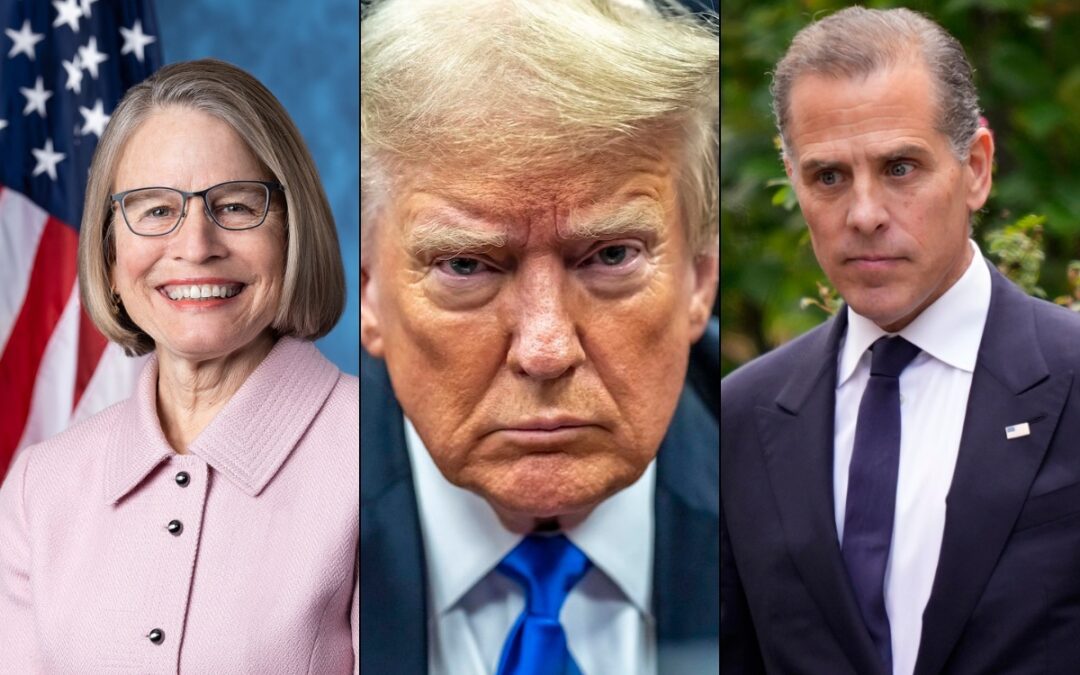
Miller-Meeks contorts herself on Trump and Hunter Biden convictions
Republican Iowa congresswoman agrees with Hunter Biden’s conviction, but minutes later, she said she has “great concerns” about Donald Trump's...
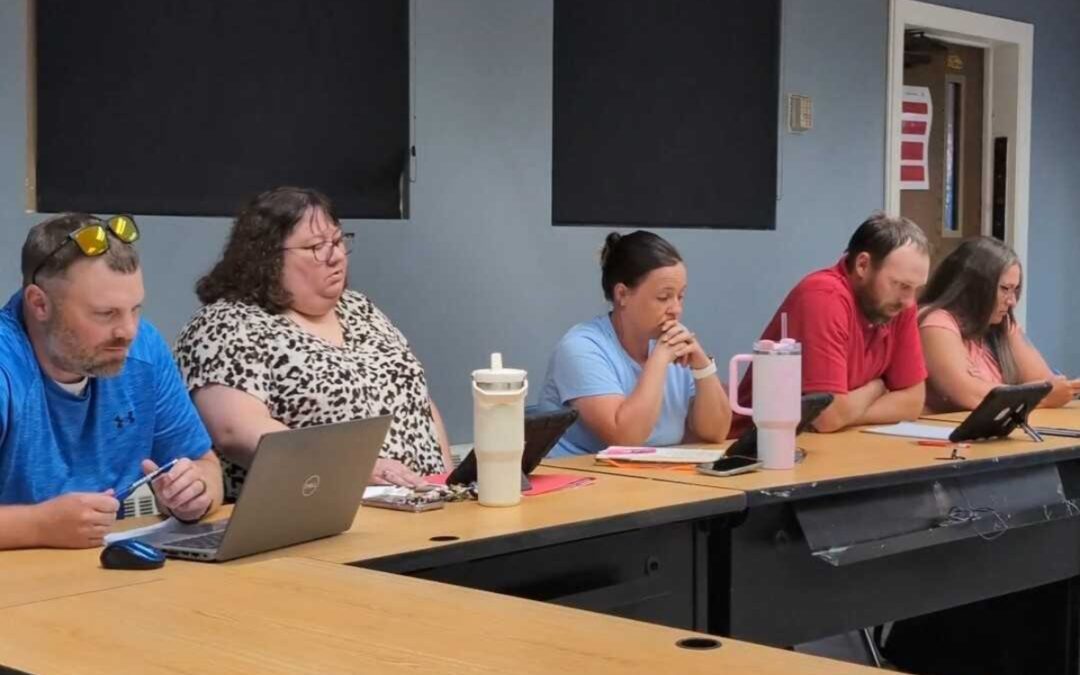
Orient-Macksburg officials move forward with plan to close Iowa school district
Orient-Macksburg School Board approves the resolution to dissolve, but voters will make the final decision. Silence filled the room after...

Big corporations are suing to block Biden’s efforts to lower costs
From the cost of medication to education to everyday expenses, the Biden administration has passed several laws and implemented many federal rules...

Lanon Baccam wins 3rd District Dem primary, will face Zach Nunn
Baccam defeats Melissa Vine to challenge Republican incumbent Lanon Baccam defeated Melissa Vine in Tuesday’s Democratic primary for Iowa’s 3rd...

Hardin County man running for office as Trump-loving Democrat to local party’s dismay
Brad Rewoldt, who recently changed his party affiliation from Republican, says his support of Trump will probably 'piss off' Democrats There is a...
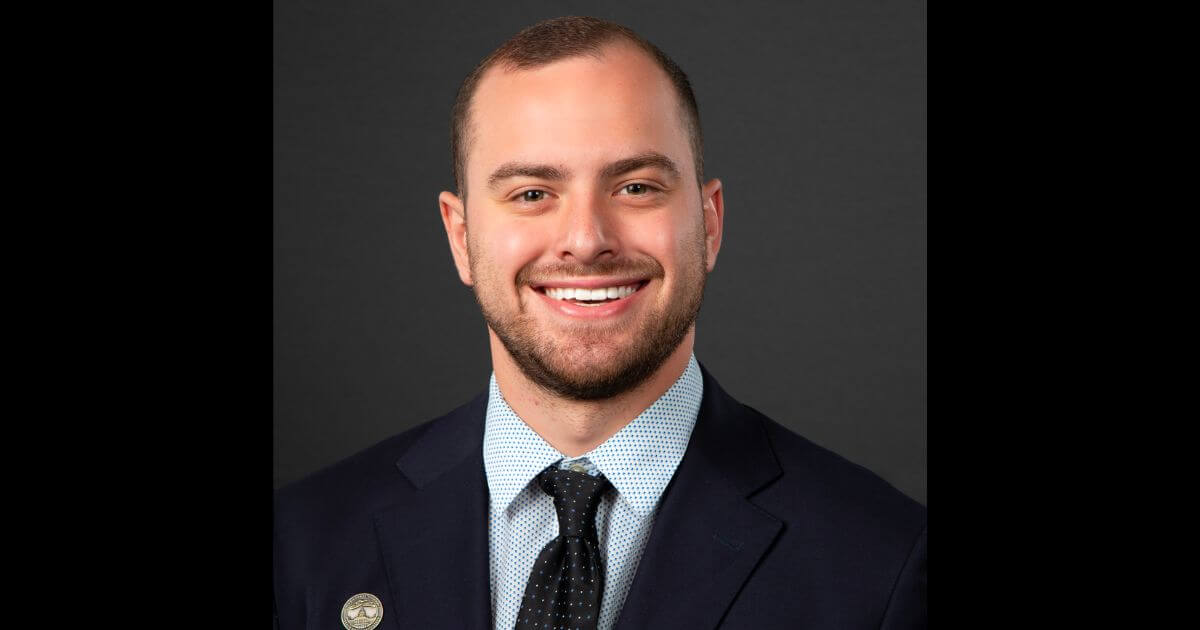
Scheetz: Tax cuts for all Iowans, not just the wealthy
State Rep. Sami Scheetz says all Iowans should benefit from tax cuts via a sales tax reduction As a state representative, my job is to serve the...

